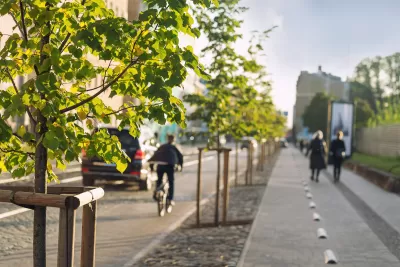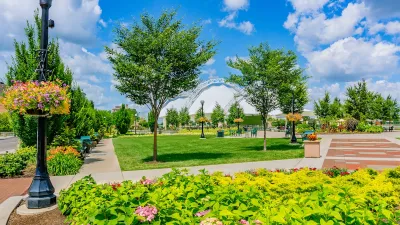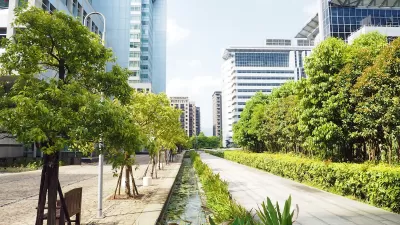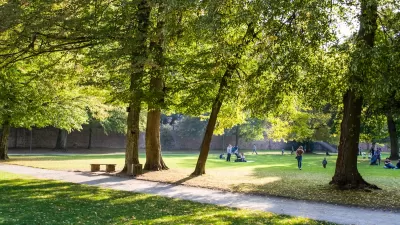Recently, the U.S. Forest Service awarded over $1 billion in competitive grants to expand equitable access to trees and their benefits. Grantees include Los Angeles County and TreePeople, who are working to plant trees where they are most needed.

Made up of trees on public and private lands, the community or urban forest is essential to a healthy, thriving, and resilient community. When spread equitably and supported by other urban greening measures, a well-managed urban forest can deliver a wide range of benefits such as healthier soil, increased biodiversity, new wildlife habitats, shading from heat, and greater community health and well-being.
Through funding from the Inflation Reduction Act, the U.S. Forest Service is making historic investments in boosting the tree canopy in urban, suburban, and rural communities nationwide. The agency has selected 385 grant proposals from entities working to increase equitable access to trees and green spaces and the many benefits they offer.
In this article from the USFS, Andrew Avitt highlights two complementary efforts to expand the community or urban forest in Southern California:
- Early Action Implementation for LA County Community Forest Management Plan:
The project addresses the tree canopy deficit within disadvantaged communities in the unincorporated areas of the county by assessing areas of low canopy coverage, planting diverse tree species, and creating workforce development opportunities for the continued maintenance and monitoring of new and existing trees. - From Redlining to Greenlining: Planting Justice in SoCal: This project involves planting trees on public and private property trees across communities to maximize environmental benefits such as extreme heat mitigation. This project uses tree planting as a vehicle to engage and empower over 25,000 people in ownership of their urban forest through engagement, education, workforce development, and collaboration.
To learn more about these efforts, please read the source article.
FULL STORY: Urban Forestry: From Redlining to Green Lining

Alabama: Trump Terminates Settlements for Black Communities Harmed By Raw Sewage
Trump deemed the landmark civil rights agreement “illegal DEI and environmental justice policy.”

Study: Maui’s Plan to Convert Vacation Rentals to Long-Term Housing Could Cause Nearly $1 Billion Economic Loss
The plan would reduce visitor accommodation by 25% resulting in 1,900 jobs lost.

Planetizen Federal Action Tracker
A weekly monitor of how Trump’s orders and actions are impacting planners and planning in America.

Waymo Gets Permission to Map SF’s Market Street
If allowed to operate on the traffic-restricted street, Waymo’s autonomous taxis would have a leg up over ride-hailing competitors — and counter the city’s efforts to grow bike and pedestrian on the thoroughfare.

Parklet Symposium Highlights the Success of Shared Spaces
Parklets got a boost during the Covid-19 pandemic, when the concept was translated to outdoor dining programs that offered restaurants a lifeline during the shutdown.

Federal Homelessness Agency Places Entire Staff on Leave
The U.S. Interagency Council on Homelessness is the only federal agency dedicated to preventing and ending homelessness.
Urban Design for Planners 1: Software Tools
This six-course series explores essential urban design concepts using open source software and equips planners with the tools they need to participate fully in the urban design process.
Planning for Universal Design
Learn the tools for implementing Universal Design in planning regulations.
Caltrans
Smith Gee Studio
Institute for Housing and Urban Development Studies (IHS)
City of Grandview
Harvard GSD Executive Education
Toledo-Lucas County Plan Commissions
Salt Lake City
NYU Wagner Graduate School of Public Service





























